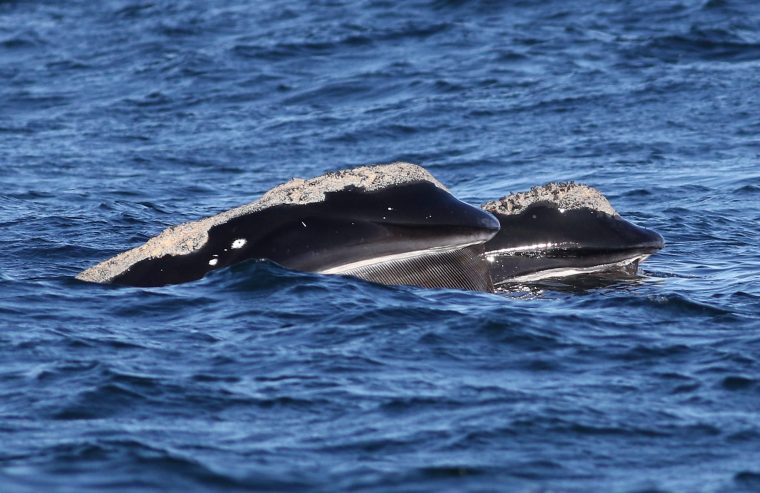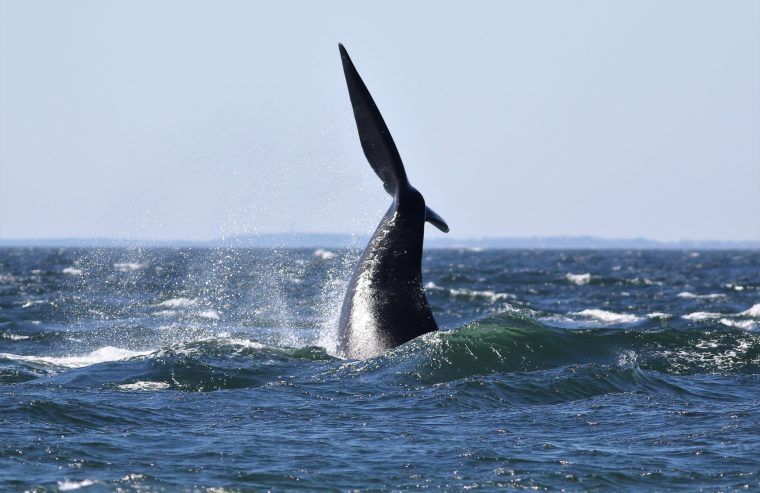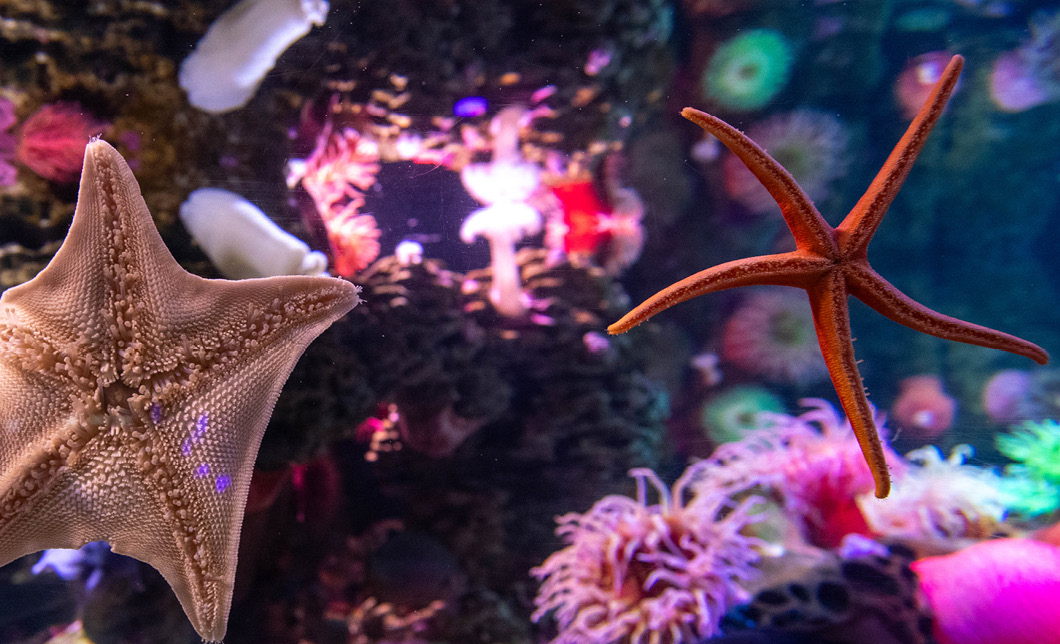Sightings of endangered whales increase off coastline

BOSTON, MASS. (April 2020) – In an uplifting sign of spring, sightings of the endangered North Atlantic right whale have increased along the Massachusetts coast as the whales continue their historic habit of coming to these waters to feed.
During the late fall and winter months, some right whales migrate to shallow coastal waters off the southeastern United States, where females give birth to their calves and some juveniles and males congregate for short periods of time. Come springtime, those whales migrate north and join others from unknown areas to inhabit Cape Cod Bay before heading to feeding grounds further north.
“In a time when so much is changing around us, I find the appearance of right whales feeding in these waters as they have for hundreds, if not thousands, of years reassuring. Some ancient behaviors remain,” said Philip Hamilton, a research scientist with the Anderson Cabot Center for Ocean Life at the New England Aquarium.
Cape Cod Bay draws the whales with its rich blooms of zooplankton to feed on.
“The plankton patches are so dense that you can often see dozens of right whales at a time forcing their massive open mouths through the water as they feed,” Hamilton said.

Brought to the brink of extinction due to commercial whaling, the North Atlantic right whale once again faces threats from human activities, including vessel strikes, entanglement in fishing gear, and the impacts of climate change. There are less than 409 right whales thought to be alive today.
For 40 years, the Aquarium’s right whale team has extensively researched and tracked individual right whales and curates the North Atlantic Right Whale Catalog. The Catalog is the result of contributions of right whale photographs from more than 500 people ranging from scientists to government officials and fishermen to recreational boaters. Researchers compare photographs of the natural markings or human-related injuries on right whales in the Catalog to determine when and where the whale has been seen before and assess where threats exist. The Catalog’s website recently got an upgrade, making it more user-friendly to the public while painting the larger life story of the whales and their struggles.
If you see a right whale, please follow federal guidelines and not approach within 500 yards, then report the sighting by calling the NOAA sighting hotline at 866-755-6622 or using the WhaleAlert app on your phone. The public is also encouraged to submit any past or recent photos of right whales through the Catalog website.
High-res photos with proper credit available here: https://neaq-my.sharepoint.com/:f:/g/personal/psnyder_neaq_org/EnKV-BX8hl5Fm9yGkIPwSycB81_wi0cgy0ji3JsOqL2gCw?e=ftNA4f
MEDIA CONTACT:
Pam Bechtold Snyder
617-686-5068
psnyder@neaq.org

